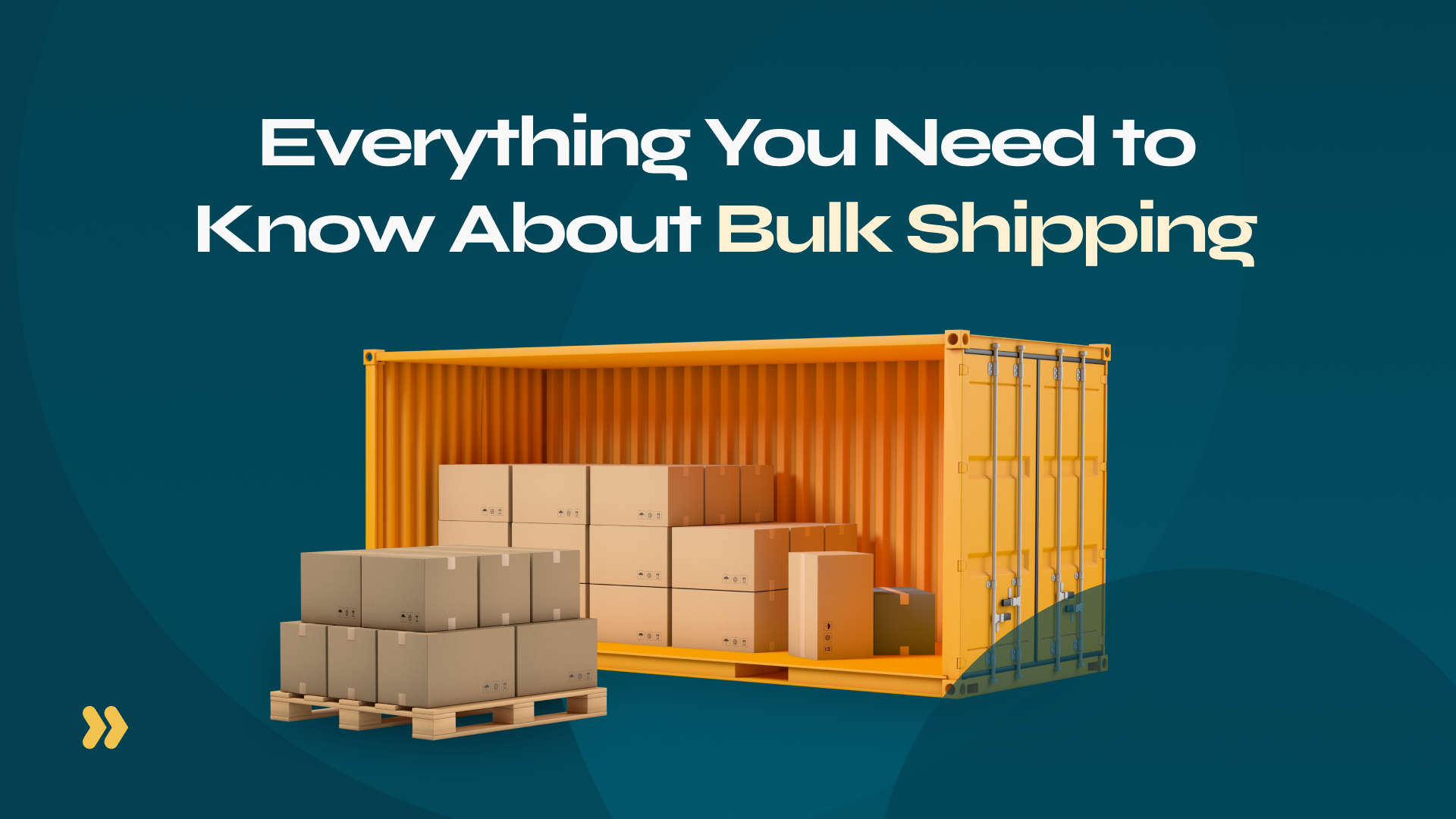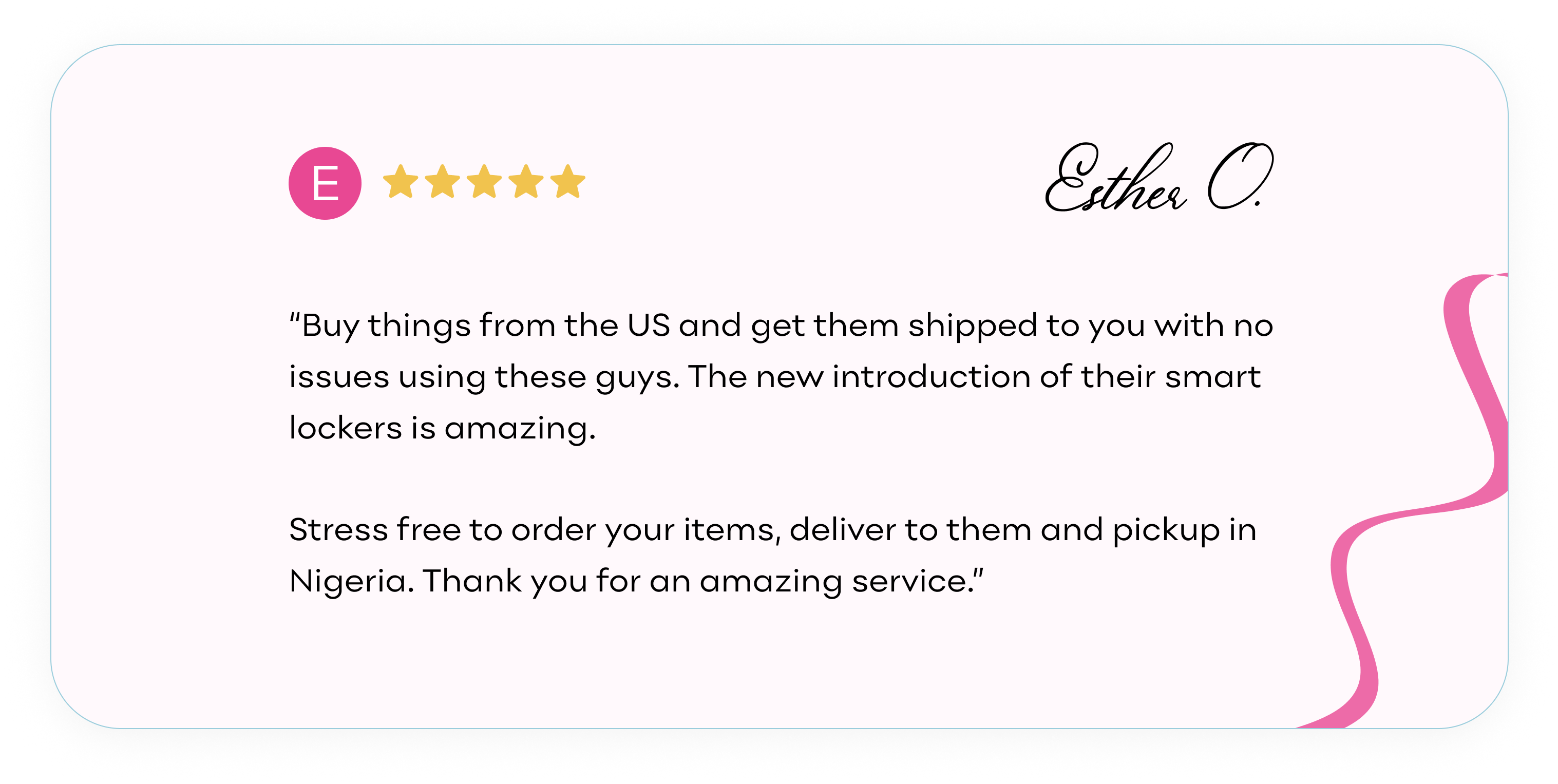Everything You Need to Know About Bulk Shipping

Growing up, I loved listening to my dad speak about containers and how they are being shipped by sea. in my mind's eye, I always think of those containers filled with goods heading to some Igbo trader in Onitsha market so they'll always have goods to sell.
Turns out I wasn't wrong. What my imagination birthed is a global phenomenon known as bulk shipping.
Bulk shipping is important to international commerce and transporting large quantities of goods. These goods (bulk commodities) range from iron to cement to agricultural produce like fertilisers and grains and even liquid like chemicals transported in solid or liquid form.
In this comprehensive guide, we will walk you through bulk shipping so you can get the knowledge needed to navigate the bulk shipping industry.
What is Bulk Shipping?
Bulk shipping, also known as bulk cargo or bulk freight, is the transportation of large quantities of goods in large quantities, typically without packaging. Instead of individual items or containers, bulk shipping involves transporting commodities, raw materials, or products in large quantities.
Bulk shipping is commonly used for commodities such as coal, grain, ore, minerals, chemicals, and other granular or liquid materials. Unlike container shipping, where goods are packed into standard containers, bulk shipping involves moving unpackaged or loosely packed cargo. The goods are often poured, scooped, or pumped directly into the ship's hold.
Advantages of Bulk Shipping
For businesses involved in transporting large quantities of goods, bulk shipping serves the following advantages:
Cost Effectiveness
Cost-effectiveness is one of the primary advantages of bulk shipping, allowing businesses to pay considerably lower shipping fees because of economies of scale. When large goods are being transported at once, the cost for each unit is lower, allowing for cost savings.
Efficiency
Bulk shipping is the most efficient method for transporting goods in large quantities. You wouldn't have to wait for your goods to be delivered in batches as specialised vessels can transport all the goods at once. This saves time and money, drives efficiency and, in the long run, allows for profitability.
Reduced Packaging Requirements
Bulk shipping eliminates the need to pack individual products as products can be directly loaded onto the cargo/ shipping vessel without extra packaging. This reduces the time, cost and labour associated with packaging.
Order Fulfillment
Since bulk items can be transported at once with bulk shipping, it helps to ensure that your inventory level is high, helping you to manage and fulfil customer orders efficiently.
Types of Bulk Shipping
Bulk shipping cuts across different types of goods and can be classified into dry and liquid bulk shipping.
Dry Bulk Shipping
This is the transportation of dry goods in large quantities. Dry bulk carriers are designed with large cargo to accommodate large goods. These cargos have hatches for loading and unloading, conveyor belts, cranes, and grabs to facilitate efficient loading and unloading. Examples of items suitable for dry bulk shipping include iron ore, grain, salt, sugar, cement, and fertilisers.
Dry bulk shipping is a critical part of the global trade network but has challenges. Weather conditions and global demand affect the prices of dry bulk items, eventually affecting the shipping rates.
Delays are also a cause for concern as goods may take longer to arrive due to weather conditions and port congestions, affecting loading and unloading operations.
Liquid Bulk Shipping
Liquid bulk shipping involves the transportation of large quantities of liquid goods. Examples of liquid bulk commodities include crude oil, petroleum products, and chemicals.
Liquid bulk carriers are specially designed vessels with tanks to store the liquid cargo. Safety considerations are paramount in liquid bulk shipping, as the cargo can be hazardous if improperly handled.
Break Bulk Shipping
Break bulk shipping is the method used to transport goods that can not be loaded in bulk into large containers. These goods are individually packaged and loaded onto a ship in bags, barrels, crates or drums. Examples include heavy machinery, steel and wood products like lumber.
Break bulk vessels are designed to handle these types of goods and are equipped with cranes and other loading and unloading equipment.
The most common challenge of this shipping method is the complex loading and offloading. Each piece of cargo requires special care and handling, making the process time-consuming and a little complex.
The Bulk Shipping Process
The Bulk Shipping Process involves several crucial steps to ensure that goods are transported efficiently and safely. These steps include booking a shipment, loading and unloading, transporting, and delivering and receiving cargo.
Booking a Shipment
This involves the shipper (someone who receives goods by sea, land or air) notifying the carrier of the goods to be transported, the destination, and any special handling requirements. The carrier then provides a quote for the shipment, and if agreed upon, a booking confirmation is issued.
Loading and Unloading
Proper loading ensures that the cargo is secured and protected during transportation. It involves carefully packing the cargo onto the ship to minimise the risk of damage or loss. This may involve using specialised equipment to lift and move heavy items and securing the cargo with ropes, chains, or other restraints. Unloading, on the other hand, is the removal of goods from the vessel and transferring them to the appropriate means of transportation.
Transportation
This is the actual movement of goods from the port where the shipment is loaded to the destination port. The carrier must ensure that the cargo is transported safely, efficiently, and in compliance with all regulations.
Delivery
The final step in the Bulk Shipping Process is the delivery and receiving of cargo. The consignee (the person to whom the goods are being delivered) must be notified of the arrival of the cargo, and arrangements must be made for the cargo to be received and cleared through customs.
Challenges in Bulk Shipping
Weather Conditions
The weather conditions are unpredictable and can significantly impact cargo transport safety. Strong winds, high waves, and storms can cause delays, vessel damage, and accidents. These conditions make it difficult to transport goods on time and can result in losses for all stakeholders involved. To minimise this, the ship's carrier and crew should monitor the weather closely, always be in touch with forecasts and ensure that they adjust routes or schedules when needed.
Safety
The transportation of hazardous materials, such as chemicals and fuels, poses a significant risk to human life and the environment. The industry must adhere to strict safety protocols to ensure the safe transportation of such materials.
Also, crew members' safety must be considered as bulk cargo can shift while in transit—issues like this call for proper handling, securing and training crew members.
Economic Factors
Economic factors such as fluctuating fuel prices, global demand and supply changes, and trade policies can significantly affect the bulk shipping industry. These factors can impact the cost of shipping goods, resulting in higher consumer prices and reduced company profits.
Introducing Heroshe: Personalized Shipping Solutions
While bulk shipping is the mainstay of global trade, instances occur where individuals and businesses seek a tailored approach to shipping goods which doesn’t fall under the bulk shipping spectrum. This is where Heroshe comes in by offering flexible and speedy solutions that help individuals and businesses ship their items from the UK and USA to Nigeria and Ghana.
Though different from bulk shipping, Heroshe provides vital services that resonate with many customers. Heroshe is the bridge connecting Africans to the global marketplace and empowering them to navigate the complexities of international shipping.
Related: Answering 40 Useful Questions About Shipping From The U.S. to Nigeria and Ghana
How Heroshe Transforms The Shipping Experience
Fast Delivery.
Heroshe understands the urgency that often accompanies international shipping. With an impressive delivery timeline of 7-10 working days, we prioritise swift and reliable service. This ensures that you can count on your shipments to arrive promptly.
Competitive Pricing
In a market with significant shipping costs, Heroshe offers competitive pricing at just $8 per pound. This affordable rate empowers you to manage your shipping expenses effectively without compromising on the quality or speed of delivery. With our shipping calculator, you can also get an insight into your total shipping cost.
Customer Delight
At Heroshe, the customer experience is paramount. We go the extra mile to ensure every interaction is marked by satisfaction and delight. Our dedicated customer support team is always ready to assist, addressing queries, providing updates, and ensuring a seamless shipping process.

Real-time Tracking.
Transparency is a cornerstone of Heroshe's service. You can track your shipments in real-time, providing peace of mind and assurance.
Whether you’re a personal shopper or a business person shopping from stores in the UK and the USA, Heroshe is your trusted buddy, helping you navigate the world of international shipping with love and swift delivery. Create an account now to power up your shipping needs.

